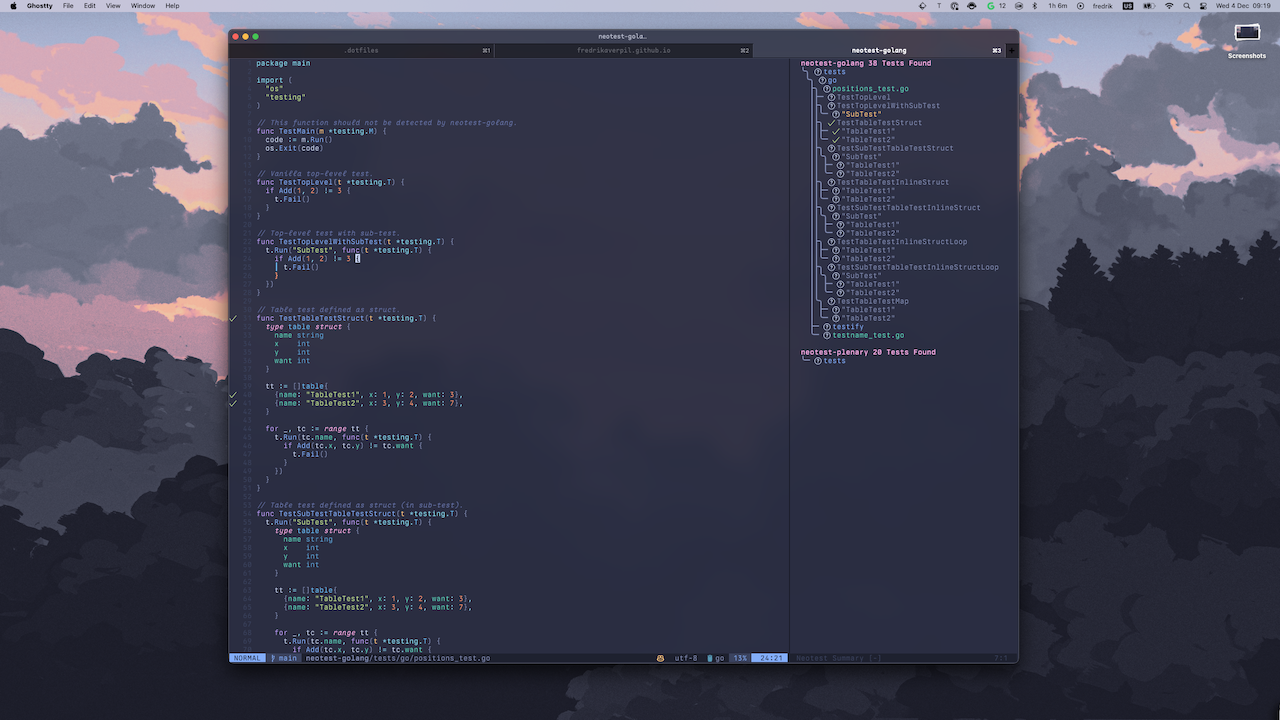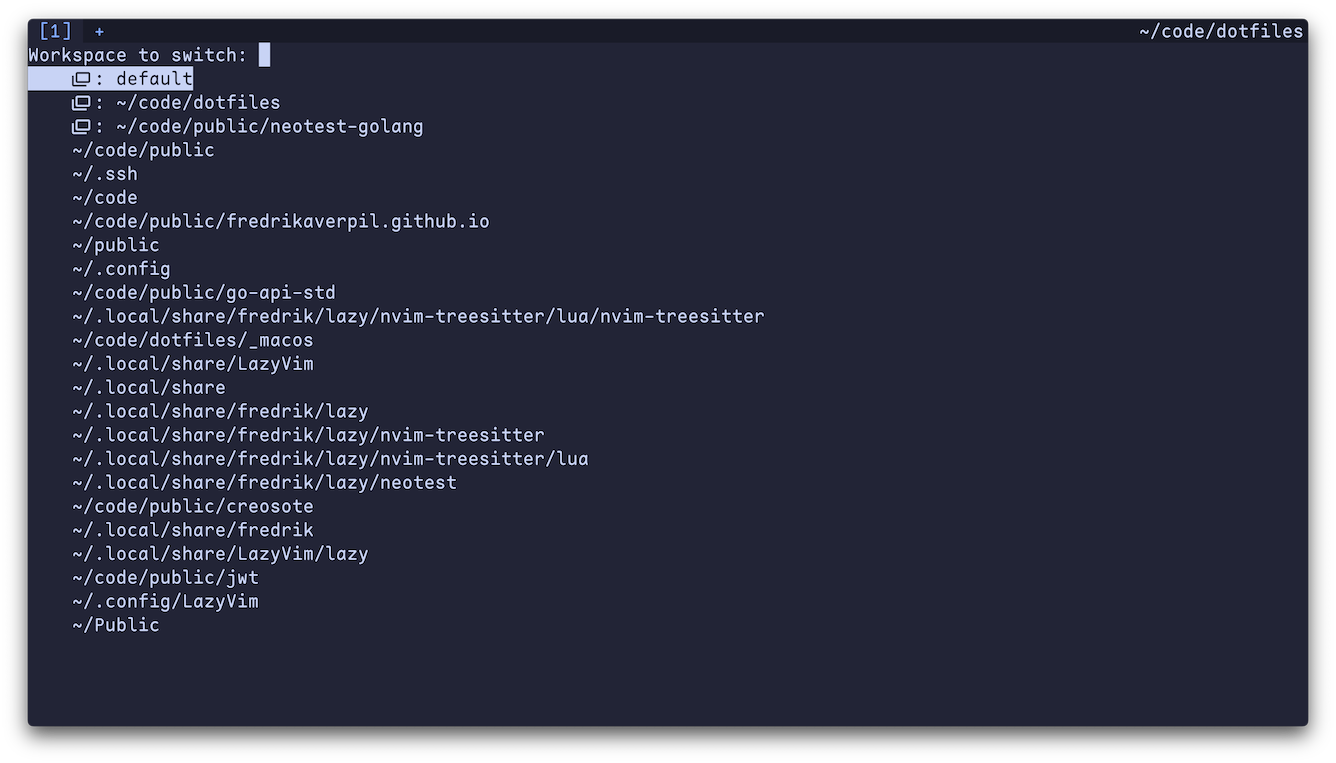Ghostty on macOS

I got private beta access (quite late), and Ghostty is probably going to be out in its first public release any day now (update: it was released on 2024-12-26). Here are my initial impressions, having used it for a couple of weeks on macOS.
Amendments 2025-01-02
This post has been amended with the following details since it was originally posted:
- Updated path to Ghostty.app's vim files.
- Release tracks; stable vs tip.
- Example config for tabs integration into title bar.
- Example command to list themes.
- Example command for setting light vs dark theme which will follow system.
- Link to tmux control mode issue.
- Workaround to Aerospace tabs bug.

